Seconds Out — The Greatest Live Album?

Reflections on Seconds Out and Genesis live on the 1977 Wind and Wuthering tour
I probably bought Seconds Out in 1979 aged twelve or thirteen, having discovered the band via And Then There Were Three. As luck would have it, my local library stocked Armando Gallo’s lavishly illustrated book I Know What I Like so I soon had a good sense of how Seconds Out fitted into the Genesis story. Recorded in Paris in June 1977 towards the end of six months on the road promoting the Wind and Wuthering album, it captures ‘old’ Genesis and features almost the very last performances of the four-plus-one line-up: Steve Hackett’s absence from mixing-desk duties over the summer effectively signalled his departure from the band. If memory serves, Gallo refers in his book to this being his favourite tour, the band, he says, performing almost flawlessly night after night.
The original October 1977 release featured twelve tracks spread across four sides of vinyl:
Side 1: Squonk / Carpet Crawlers / Robbery, Assault and Battery / Afterglow
Side 2: Firth of Fifth / I Know What I Like / The Lamb Lies Down on Broadway / The Musical Box (excerpt)
Side 3: Supper’s Ready
Side 4: The Cinema Show / Dance on a Volcano / Los Endos
With Peter Gabriel’s departure in 1975, the harshness and aggression noticeable in their earlier material — the likes of The Return of the Giant Hogweed — has given way to a softer and more polished sound. In part, this comes from Phil Collins – his vocal more soothing and melodic than Peter’s husky voice. Tony Banks, meanwhile, is the dominant musical presence, his lush keyboard sound leading the way in song after song and smoothing away the rough edges of the original recordings. With Steve Hackett’s guitar often an elusive, spectral presence floating free in the air, it falls to Mike Rutherford’s bass to provide counterpoint to Tony, such as during the exquisite keyboard solo starting at roughly 2:25 of Robbery, Assault and Battery.
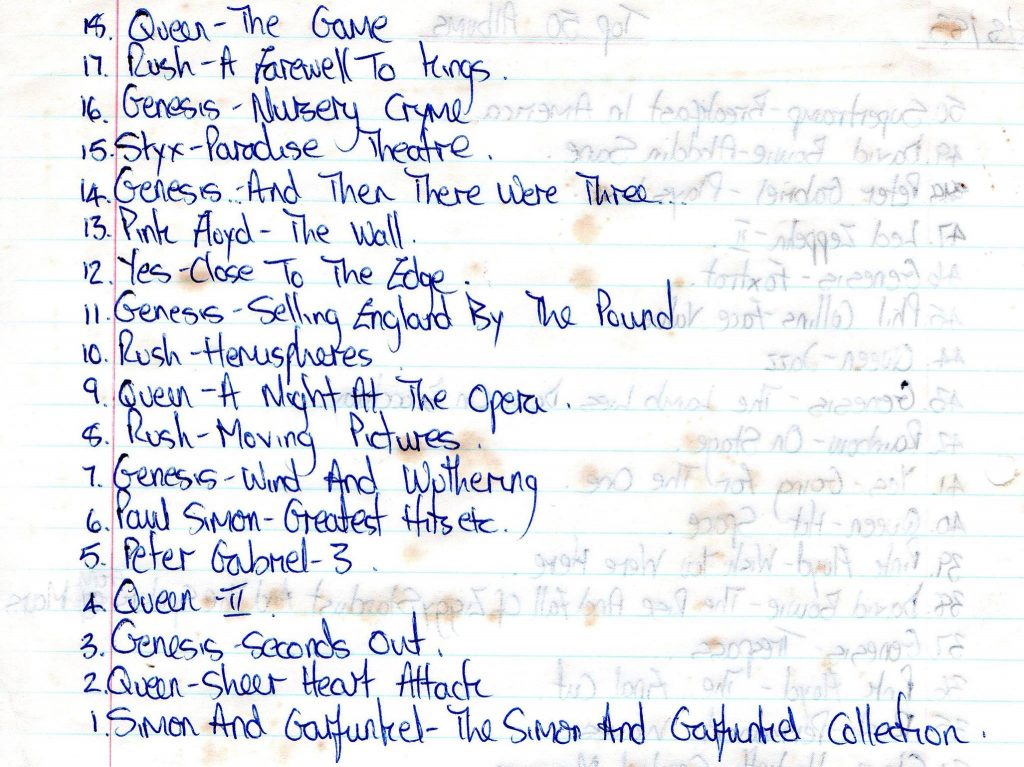
Carpet Crawlers — an unlikely staple of the live show over the years — builds gently but insistently from its delicate opening. Robbery, Assault and Battery bounces with cockney swagger, allowing Phil to dust off his boyhood Artful Dodger character. The Dance on a Volcano / Los Endos medley closes the main set in thrilling fashion, as the 747 landing lights and dry ice depicted in the spectacular front-cover photo bathe the stage in ghostly white.
It gets better. Ahead of us lie perhaps the four finest Genesis moments on record.
A Genesis diehard will more than likely argue that Supper’s Ready, which dominates the third quarter of the set, is the band’s signature song – their Stairway to Heaven, their Smoke on the Water. It is epic, ambitious, daring — and on Seconds Out it is magnificent. The delightful sound mix helps, of course, but so does Phil’s front-man masterclass — by turns quirky and playful, soaring and majestic — offering his own interpretation of the song and more than doing justice to Peter’s original vocal.
The finale, As Sure as Eggs Is Eggs, is heady stuff indeed:
The lord of lords
Supper’s Ready
King of kings
Has returned to lead his children home
To take them to the New Jerusalem
Turn it up to 11, sit back and try not to shed a tear or two.
Two songs from arguably their best album — Selling England by the Pound — are a particular joy. The Cinema Show is a patchwork quilt of musical ideas — a succession of miniature keyboard flourishes and dazzling drum fills from the Bruford–Collins combination at the back, building to a show-stopping bass run from Mike at approximately 9:52. Though it is primarily a Tony Banks song, Firth of Fifth is Steve’s moment in the limelight. Often a peripheral presence, here is a chance for guitar to take centre stage.
And then there is Afterglow — an as-good-as-it-gets, goosebumps Genesis moment.
Now I’ve lost everything I give to you my soul
Afterglow
The meaning of all that I believed before escapes me in this world of none
I miss you more
Written in minutes (says Tony) and set lyrically in the immediate aftermath of some cataclysm or other, it builds from a hypnotic guitar riff to a spine-tingling climax, complete with angelic choir, an effect probably created on Tony’s ARP Pro Soloist. He uses it elsewhere on the album with equally haunting and dramatic results.
Ironically, Squonk is, for this fan at least, one of the weaker tracks – ironic in the sense that, for obvious reasons, the set opener is usually exceptionally strong. I Know What I Like, their first hit single, is also a dip of sorts. Performed live, it stretches out over eight minutes and more, a space for Phil’s on-stage antics with a tambourine. It’s an interlude of musical light relief, though the improvised middle section drags somewhat.
Everything I thought I knew about Genesis live in the seventies came from three sources: the Gabriel-era Genesis Live album, Gallo’s book and Seconds Out. Times change. Today the Genesis fan has an abundance of source material – the lengthy interviews making up the official Chapter and Verse book, for example, are a mine of useful detail, anecdote and context.
Armando Gallo had privileged behind-the-scenes access, but we can all now follow in his footsteps and check out the tour at various stops along the way. These reflections are based on seven excellent bootlegs from the Wind and Wuthering tour, all readily available for download completely free of charge: the London Rainbow and Southampton (January), Dallas and San Francisco (March), Sao Paolo (May), Earls Court, London (June) and Zurich (July). Listening to them offers us a far more complete picture of Genesis live in 1977 than the one presented by Seconds Out.
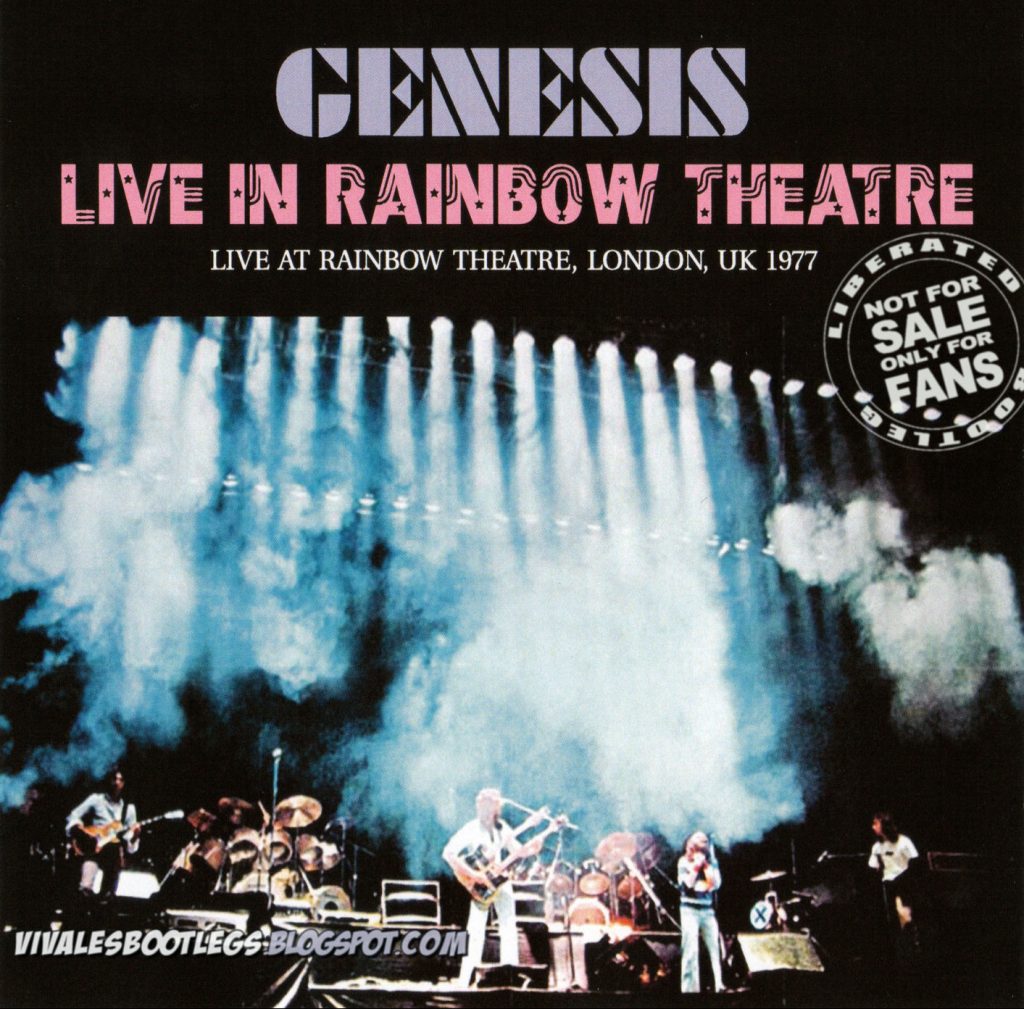
The actual running-order of the live show varied considerably from the Seconds Out track-listing. After some experimentation during the initial British dates (including, it seems, the short-lived inclusion of Lilywhite Lilith and Wot Gorilla), the set list eventually settled down to this:
Squonk /
Songs that were played live but don’t appear on Seconds Out are shown struck throughOne for the Vine/ Robbery, Assault and Battery /Your Own Special Way/ Firth of Fifth / Carpet Crawlers /In That Quiet Earth/ Afterglow / I Know What I Like /Eleventh Earl of Mar/ Supper’s Ready / Dance on a Volcano / Los Endos / The Lamb Lies Down on Broadway / The Musical Box (excerpt)
Eleventh Earl of Mar occasionally opened the set, and The Knife was included as an additional encore towards the very end of the tour, featuring on the Earls Court bootleg. All in a Mouse’s Night was played in the first few shows and then dropped relatively quickly for no obvious reason. Your Own Special Way was probably included as the then-current single. On stage, it falls rather flat despite some gorgeous additional piano from Tony. With the release of the Spot the Pigeon EP later in the year, the lesser-known but excellent b-side Inside and Out, another showcase for Steve’s guitar, took its place.
The Cinema Show was recorded on the band’s previous tour, having been dropped from the set by 1977. The reason for its inclusion here is not immediately obvious — a courtesy to Bill Bruford, perhaps (the band’s first fill-in drummer on stage: Chester Thompson took over drumming duties for the Wind and Wuthering tour and features on the rest of the album), or a discreet admission that leaving it out of the set had been an error (it was back for the next tour).
The decision to include The Cinema Show on Seconds Out and to omit several songs from Wind and Wuthering has a significant impact on the overall musical balance of the album. Unlike the live show, it is dominated by Gabriel-era music — in total, something like two-thirds, including the entirety of sides two and three — whereas at Dallas on 19 March, to choose one gig at random, Gabriel-era music comprises less than half the set. Five songs from Wind and Wuthering are performed (it was six in the early shows when All in a Mouse’s Night was played), of which only Afterglow eventually made it onto Seconds Out.
The words ‘supper’s ready’ are spoken by Phil to introduce, well, Supper’s Ready. They are the only words spoken on the album (except for a brief, breathless “merci, Paris” and “merci, bonsoir”). It is all deeply serious. Except, in reality, it wasn’t. Seconds Out omits all the between-song chatter — and there’s a lot of it — and with it much of the humour that was integral to a Genesis show.
Phil is at the centre of it all, naturally. He’s following a tradition started by Peter, filling space to allow time for retuning and assorted tweaking and twiddling. So we miss out on the dodgy exploits of Harry the bank robber and the saucy goings-on of two virgins, Romeo and Juliet, the detail more or less titillating from one night to the next, presumably depending on whether the show was being broadcast live on radio. Mike joins in the fun. Your Own Special Way — about “Myrtle the Mermaid” — is apparently “racing up the Venezuelan charts”. The story of Eleventh Earl of Mar, meanwhile, is set in Scotland, “a small country just north of England”. This levity is all perhaps a bit too much for Steve, who politely informs the audience that Firth of Fifth is “a song about a river”.
When the audience heard Phil announce at, say, Southampton Gaumont Theatre on 20 January 1977 that “this next one is from our new record”, did they already have an inkling that what they were hearing was one of a collection of songs that would stand the test of time — songs that are as fresh and exhilarating to hear in 2019 as they were when first released over forty years earlier?
Bootlegs offer us a more rounded picture than official releases — rough edges and raw mixes, mistakes and miscues — and as such they are essential listening for any fan. But Seconds Out provides something more. Beautifully mixed (to this amateur’s ears, at least), it captures a band at the peak of their game, playing many of their finest songs and sounding exquisite throughout. It is a classic album – classic in the sense of ‘the best, the highest quality’, but classic also in its timelessness. It deserves a place on the shortest of shortlists of the greatest live albums of all time.

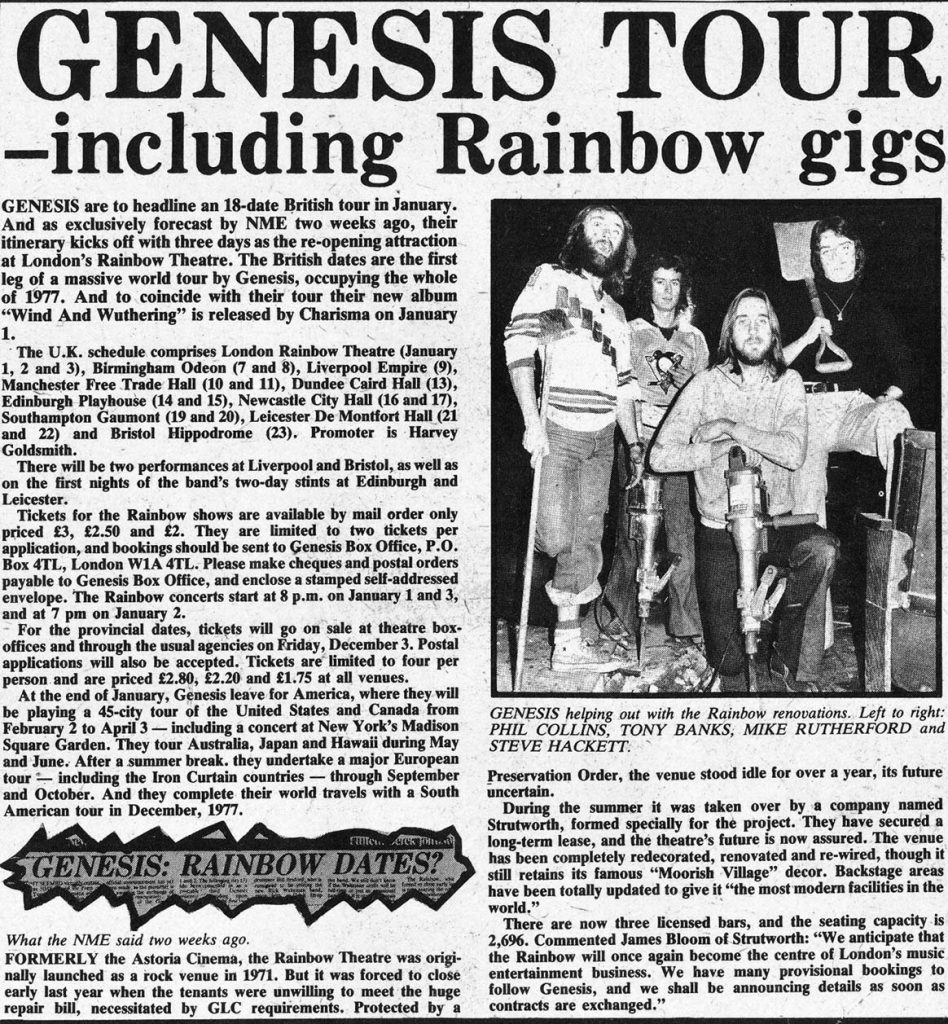

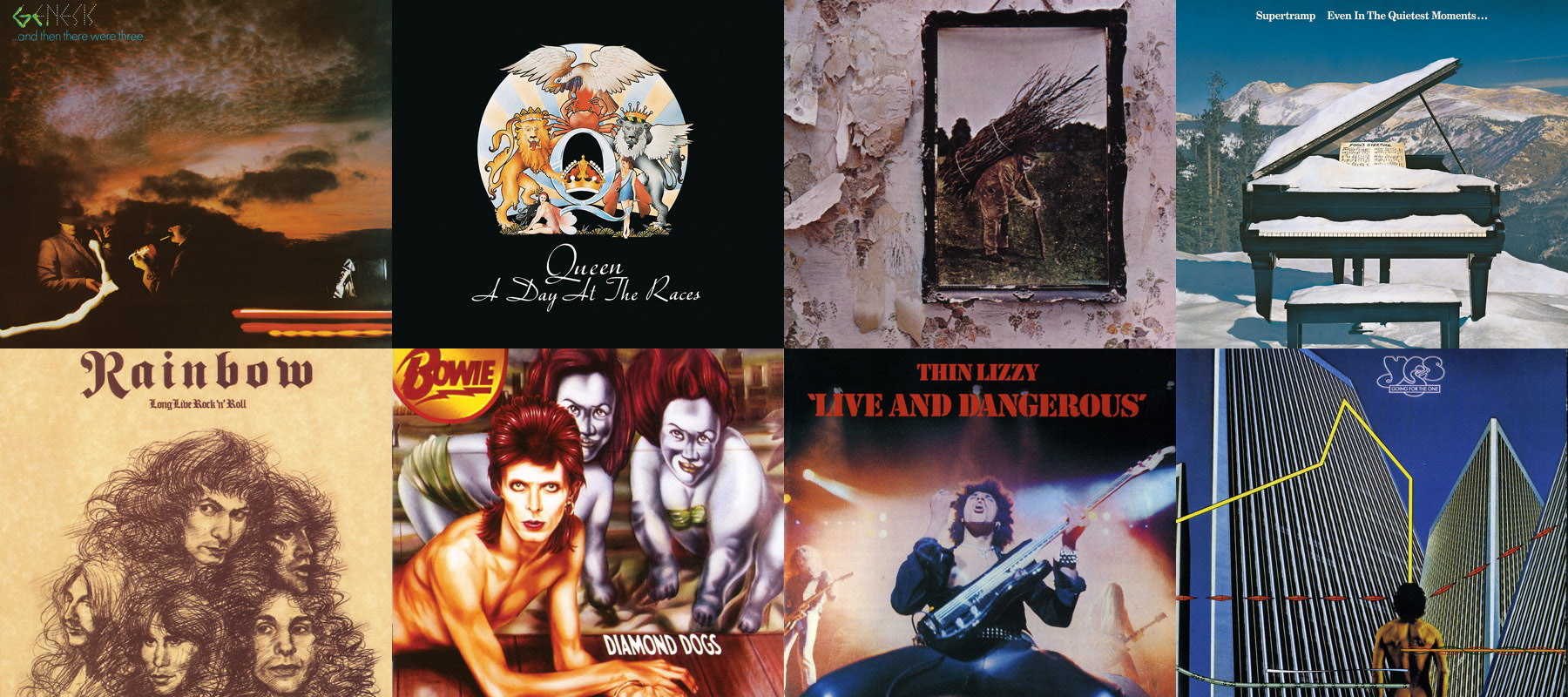

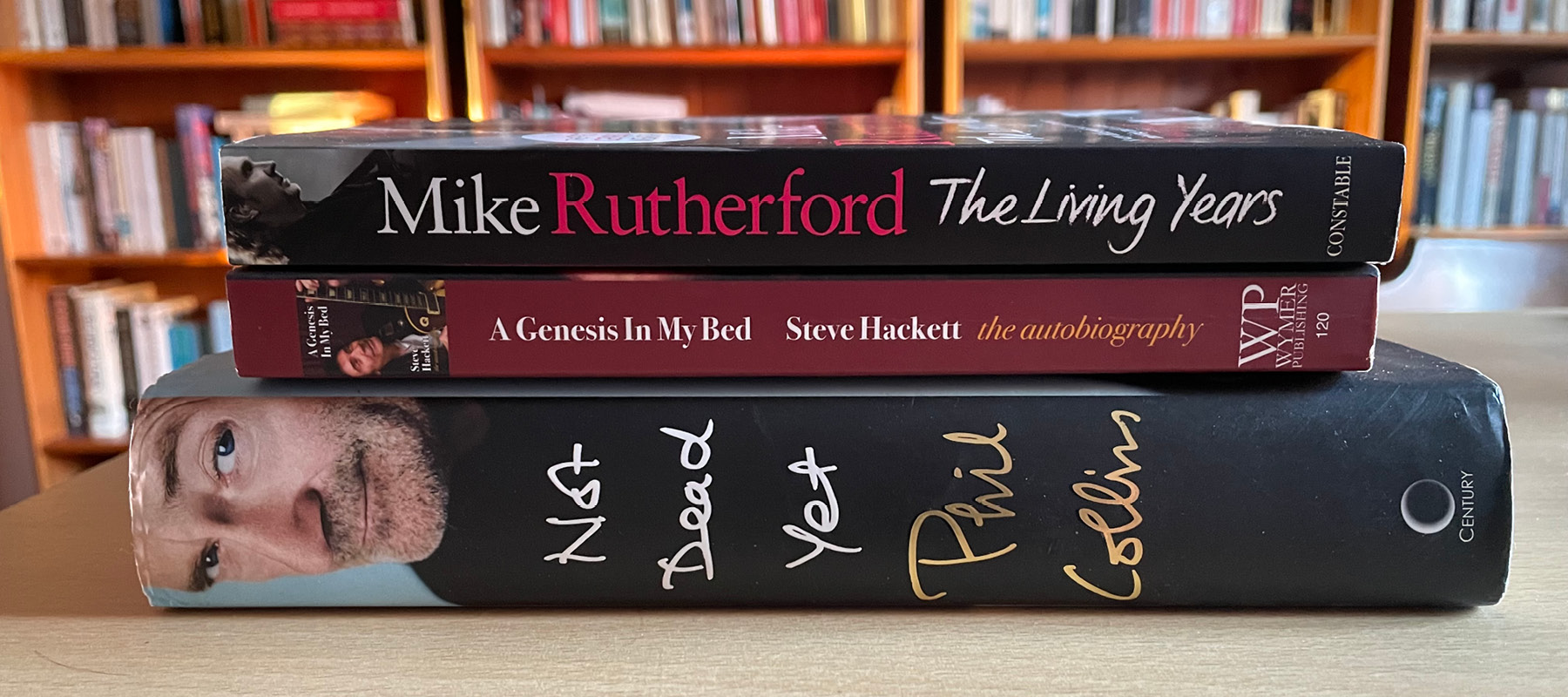
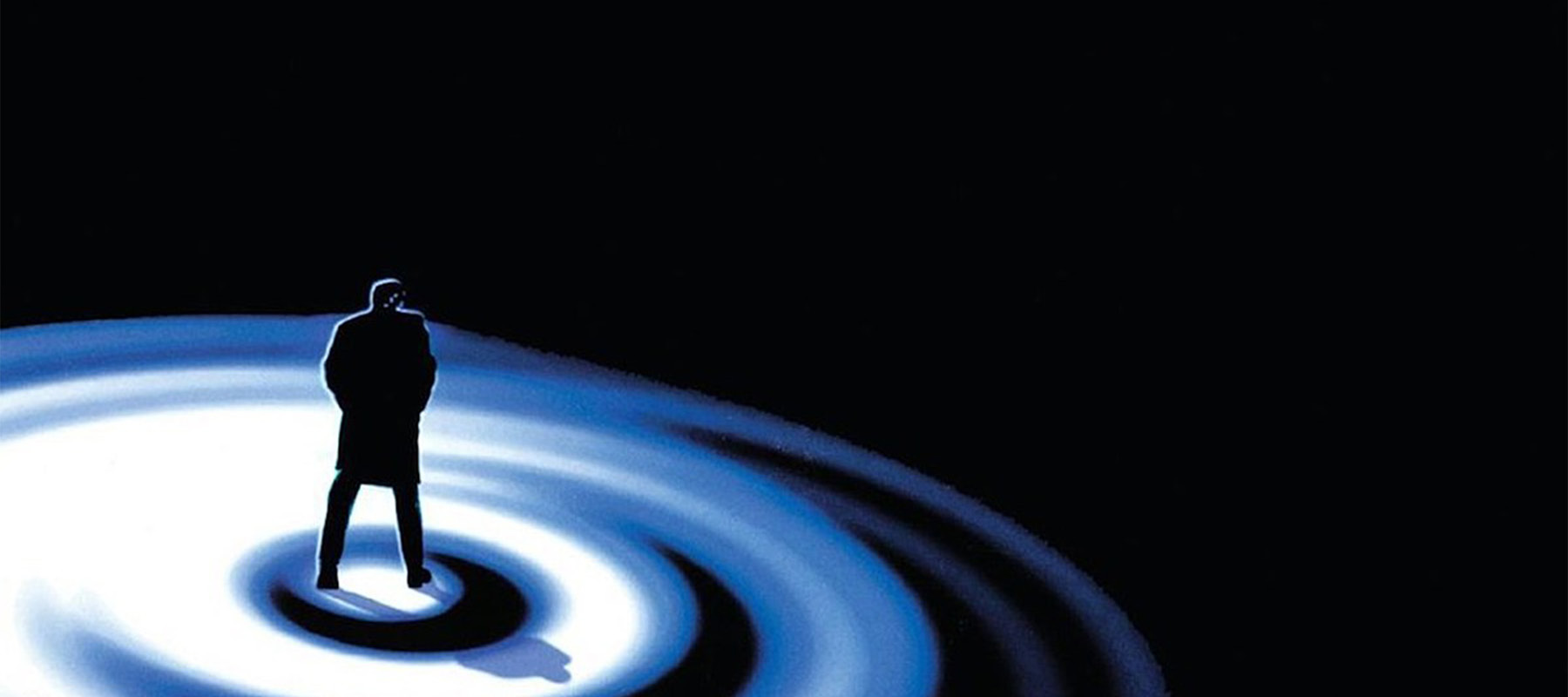
Kudos on a really brilliant review of “Seconds Out” and related W&W topics. You’re like my brother from another mother in terms of your artistic and literary sensibilities. One minor thing – the choir that soars over the last half of “Afterglow” is more likely coming from a Mellotron (or Chamberlain, a similar tape loop keyboard). Tony Banks was one of the masters of that somewhat temperamental late 60’s beast of an instrument, which was a prog staple until usable samplers emerged.
Hi there. Thanks for not just reading my blog but also taking the time to write something. I really appreciate it. I found the info about Tony’s ARP Pro Soloist on a specialist website, I think. (There’s no way I would have known that stuff myself.) My use of the word ‘probably’ suggests they themselves weren’t sure. I think it’s also discussed in the official Chapter and Verse book. Anyway, I absolutely agree with you about the Mellotron in early Genesis stuff. If you haven’t done so already, you might want to have a read of my Genesis Bootleg History series of blogs. Once again, many thanks!
Seconds Out is perhaps my favourite live recording of this band in that it brings back so many memories of seeing Genesis in Philadelphia in 1976 and in Hampton, Virginia in 1978. I have slides of these gigs that I took with my SLR camera and at the latter gig I met Tony and Chester and Phil in the bar of the local Hilton where they were staying. I love all types of Music and the symphonic aspect of Genesis’ music adds so much plus having two drummers on some of the songs is superb!
Thanks for taking the time to reply. I really appreciate it. It sounds like you have some fantastic memories to cherish. I never saw them in concert. I thought about getting a ticket for the 2020 tour but decided against … for reasons that will be obvious when I get round to writing about the later tours.
It is funny about Genesis in that I was not keen on them when Peter Gabriel was in the band but I love his solo albums. The gig in Hampton VA was pure serendipity as I was passing thru Hampton and happened to pass the local blimp hangar and saw that they were there that evening. The crowd was not that big but the show was great. I walked around the aisle on the second level towards the end of the gig and it was magic. I can say that I shook Phil Collins’ hand when he had hair. I sat at the bar and chatted to Chester T for a bit. It is sad that Phil is not what he used to be.
Good god….A farewell to kings only number 17…..
Seconds out is brilliant..it stands out with ..Live and Dangerous ,Strangers in the night,All the worlds a stage..Music I grew up with and still love now..How deep can you look into it ..they are moments in time brilliantly captured when the bands where in a good place ,,at the top of their game..,these where rare moments in time ..something I experienced live…on several occasions..but those times have gone …only memories…
You are right. But the whole story is fascinating particularly, apart from the music, because of the Collins replaces Gabriel, Hackett leaves, Genesis survives aspect. I blast Seconds Out on 5.1 when I’ve got the place to myself, and can’t resist going up to the centre speaker from which Phil’s lonely voice comes and just marvel at how sublime it was then, before he developed ‘the rasp’. And yes if I’ve had a few beers I do get sad that it is so long ago and now unattainable, and the Phil is in such a bad way. Man, what luck you had getting that Hampton gig, and meeting them at that magical time.